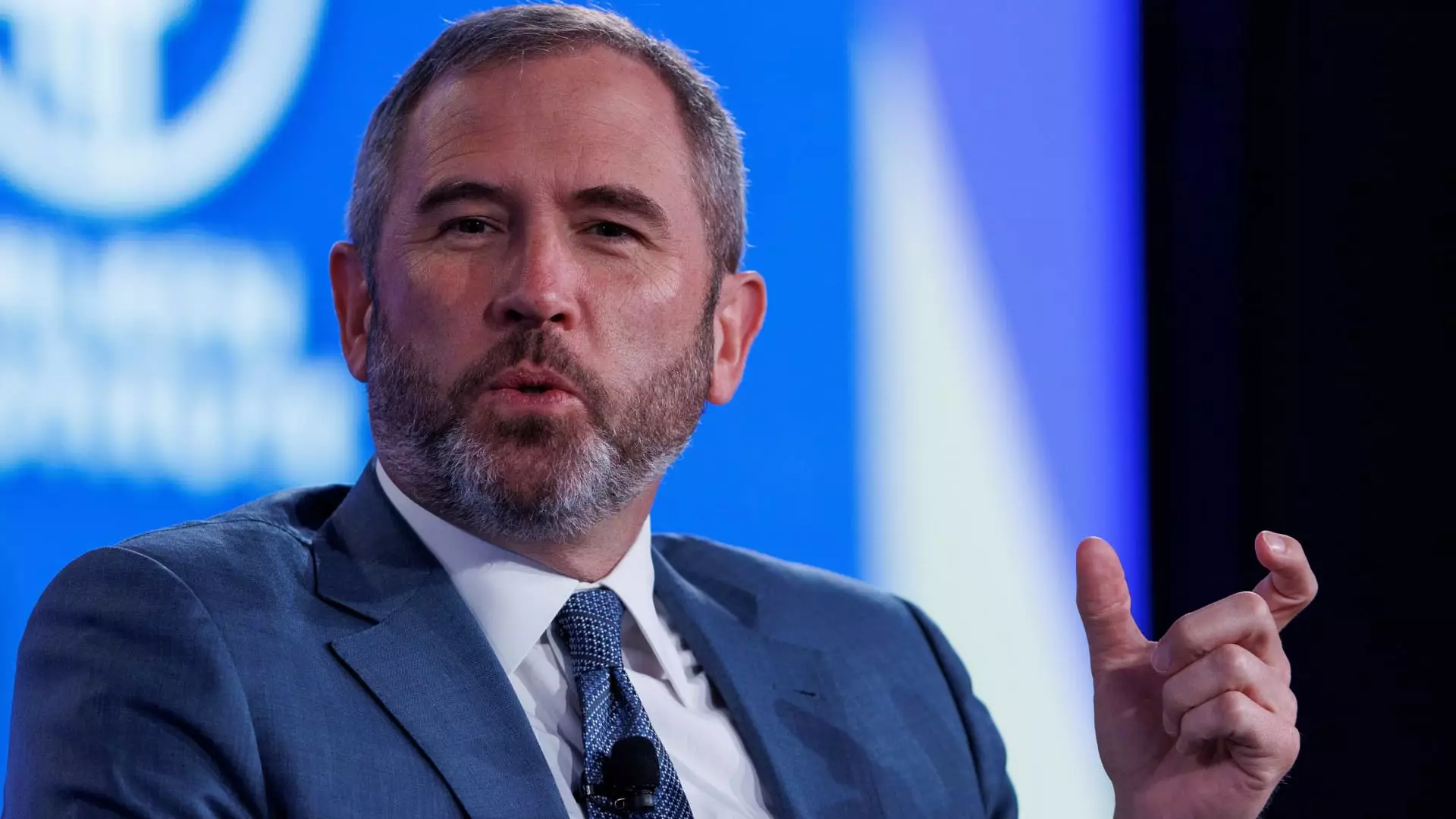The tide has turned dramatically in the world of cryptocurrency enforcement with Ripple’s recent triumph over the Securities and Exchange Commission (SEC). After a prolonged and often tumultuous battle that began in 2020, the SEC officially dropped its lawsuit against Ripple concerning the status of its XRP token. This legal saga, which began on the last day of Jay Clayton’s tenure as SEC chair, not only challenged Ripple’s financial practices but also symbolized the SEC’s broader war against the cryptocurrency landscape in the United States. With Ripple’s exultant announcement, the narrative shifts away from oppression to one of potential rebirth and renewed enthusiasm in the crypto sphere.
The Ripple case wasn’t just a skirmish; it was a bellwether for the entire cryptocurrency industry. After years of surveillance and aggressive suit filings against prominent crypto businesses such as Coinbase and Binance, this moment feels monumental. Reactions from crypto analysts and companies alike underscore the weight of Ripple’s fight. The firm not only defended its interests but also catalyzed a wave of momentum that could signify an awakening for cryptocurrencies in the U.S. market. Stuart Alderoty, Ripple’s Chief Legal Officer, unabashedly proclaimed that Ripple “threw a major wrench into the SEC’s plans to destroy crypto in the U.S. through enforcement.”
The Unfolding Narrative of XRP and Regulatory Opposition
XRP’s creation in 2012 positioned it as one of the early contenders in the non-Bitcoin cryptocurrency arena. Despite facing regulatory headwinds, Ripple has remained a noteworthy player in the market, and the recent legal victory catalyzed renewed confidence in its potential. Following the announcement that the SEC was withdrawing its four-year lawsuit, XRP’s value surged by approximately 11%, suggesting that investor sentiment is rapidly pivoting towards optimism.
This legal confrontation was characterized by grueling financial undertakings, with Ripple reportedly spending around $150 million to safeguard its position against Gary Gensler’s SEC, which was often criticized for taking an aggressive stance against the crypto sector. The battle reached a crucial juncture with a federal judge ruling in July 2023 that XRP was “not necessarily a security on its face,” a ruling that significantly eroded the foundation of the SEC’s case and ignited hope among other crypto proponents.
A New Era: Shifting Regulatory Dynamics
The legal landscape is now changing as this victory sends shockwaves throughout the regulatory framework surrounding cryptocurrencies. The SEC’s shift from a combative stance towards engagement is evident in its recent crypto roundtable, a departure from previous methods of confrontation. Hester Peirce’s leadership of the newly minted Crypto Task Force signals a reorientation towards building a constructive partnership with the industry, rather than perpetuating hostility. This signifies a clear signal that the SEC is willing to evolve and accommodate the nascent technologies that embody cryptocurrencies.
One particularly notable development has been the SEC’s decision to rescind Staff Accounting Bulletin 121, which had previously classified crypto assets as liabilities on institutional balance sheets. This move is widely regarded as a monumental shift, enabling banks and institutions to view cryptocurrencies in a more favorable light, thus stimulating broader institutional engagement in the market. Peirce’s jubilant “Bye, bye SAB 121! It’s not been fun,” encapsulates the prevailing sentiment among crypto advocates eager for a regulatory environment that promotes growth rather than stymies it.
Political Ramifications: The Crypto Landscape Under a New Leadership
The political repercussions of Ripple’s legal win may be far-reaching. This victory has the potential to reconstruct the crypto landscape in the U.S. As President Trump positions himself with the crypto community, his recent declarations about wanting to turn the U.S. into the “crypto capital of the planet” signal a significant acknowledgment of the sector’s potential for economic growth. Disenchanted by regulatory burdens, crypto enthusiasts are now grappling with the evolving political landscape to advocate for equitable legislation.
Major financial institutions, represented by CEOs from Goldman Sachs and Morgan Stanley, have also begun expressing renewed interest in cryptocurrencies, signaling a thawing relationship with regulators. The momentum is unmistakable, as influential figures like David Sacks, who stands beside the president as his crypto czar, enthusiastically declare that “the war on crypto is over.” With Ripple’s landmark win, there is renewed faith in the idea that cryptocurrencies may finally receive the acknowledgment and constructive framework they desperately need.
Ripple’s narrative represents more than just a legal triumph; it embodies the resilience of a burgeoning industry that has long been buckling under the weight of overzealous regulation. As XRP continues to navigate its newfound freedom, the broader cryptocurrency ecosystem watches closely, hopeful that this turning point heralds a future characterized by transparency, innovation, and opportunity.

